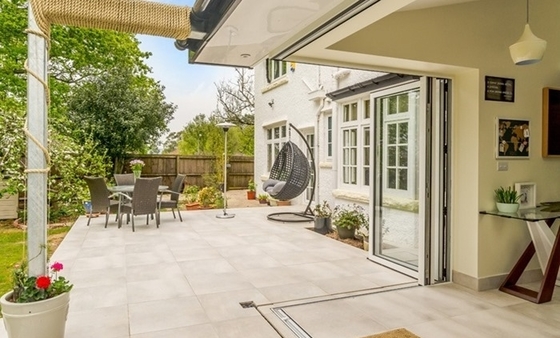
Porcelain paving products are a relatively new to the outdoor tile market, but as word of their quality and reliability spreads, they are rapidly becoming a highly popular material choice.
As the demand for porcelain products increases, so does the number of individuals looking for more information about these new arrivals in the world of paving. What do they want to know? They're wondering what exactly makes porcelain so special, and why not stick with traditional stone paving?
More...
One of the advantages of using porcelain paving is its incredible diversity. There are so many options to choose from when it comes to tile design, colour, and size, it can be hard to know where to start. If you’re someone who’s looking to break away from the mainstream and bring a bit of excitement into your patio, this is the place for you.
We’ve gathered our favourite unusual paving slab options and pulled them together for this collection; if your aim to have a patio that stands out from the rest, look no further. Let's get into it!
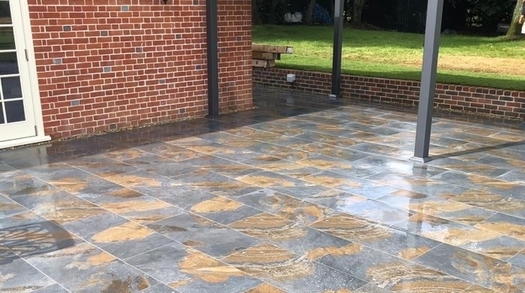
This tile really stands out with its contrasting slate grey and metallic rust style dual-tone. Bringing distinctive contrasts and outstanding character to your garden with these daring tiles. Not only are these Slate Rust porcelain tiles gorgeous but they also have the benefits of all porcelain tiling products, as they're low maintenance and incredibly durable.
- Dimensions: 450 x 900mm
- Thickness: 20mm
- 12 design variations
- Grip Factor: 4
- Textured Grip
Buy Now
More...
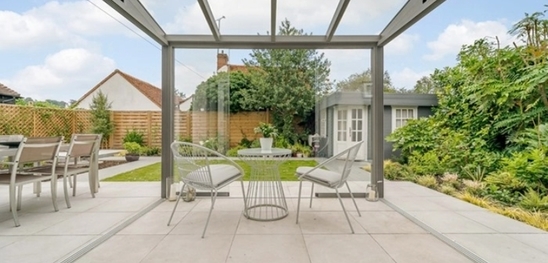
There was once a time when porcelain was considered a fragile, delicate material, reserved for use in tea sets and trinkets. However, new technologies and firing techniques have allowed manufacturers to create thicker and more durable porcelain products.
Since these advancements people have been made aware of the potential and versatility of porcelain. More and more uses have been found through decades of developments, and that includes paving. Porcelain is an extremely popular paving option, but if you're here reading this article, you're probably wondering if porcelain is worth the hype?
More...
Happy new year! Even though it's the middle of winter and 2022 has only just begun, our customers have sent us some lovely photos of their gardens since the Christmas holiday finished, and we can't wait to share them with you.
Here are some of the pictures we've received from PrimaPorcelain customers in the last week or two...
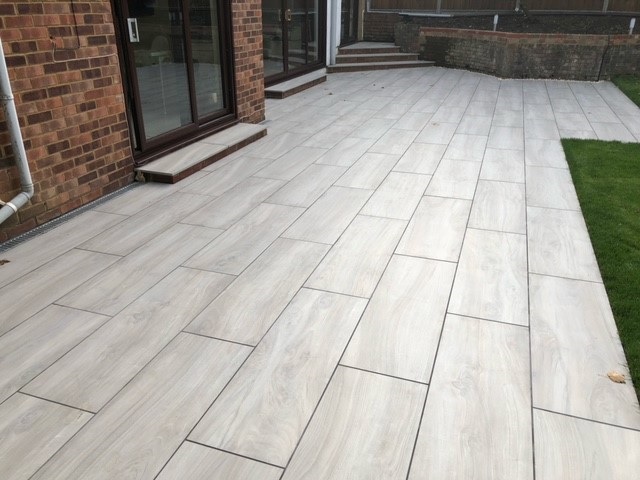
This lovely patio uses our 20mm Forest Grey Larch paving slabs. These low-maintenance porcelain tiles have a unique design that looks like weathered grey wood. Ideal if you want to bring some Nordic style to your garden!
More...
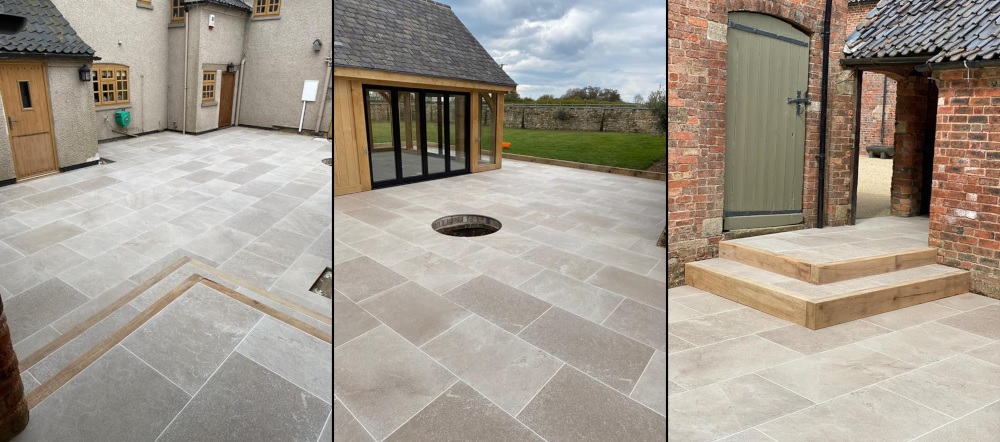
Earlier this year, Marvin Building Services - a construction company based in the East Midlands - installed some PrimaPorcelain paving for a customer in Melton Mowbray, Leicestershire.
More...